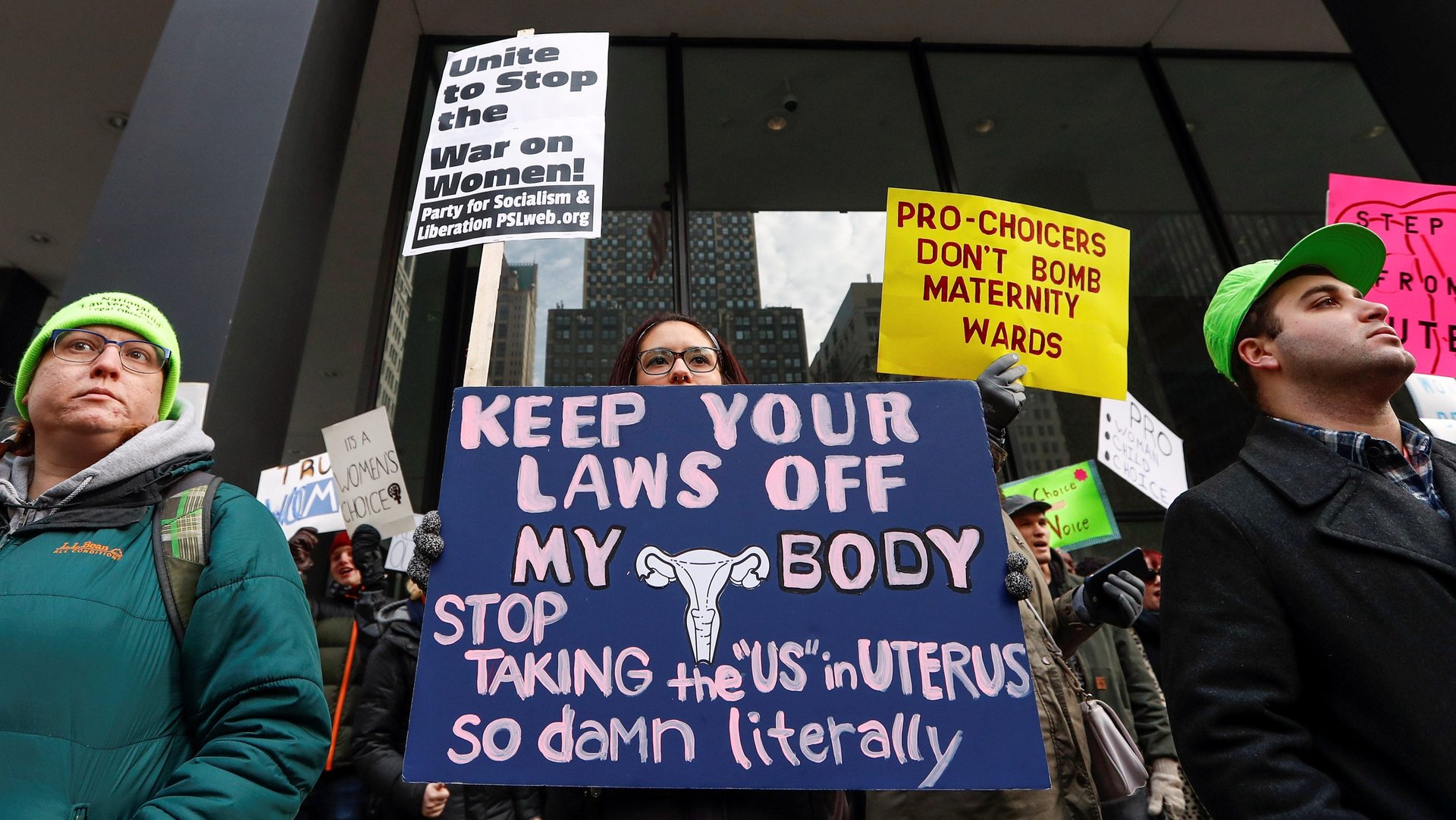The bill to ban abortion at 20 weeks is based on fake science
Today (Oct. 3), the House will discuss a bill, introduced by Arizona Republican and member of the Freedom Caucus, Trent Franks, and co-sponsored by 170 representatives, which aims to introduce a blanket ban on abortion at the 20th week from conception. The Trump administration, through the Office of Management and Budget, has expressed its support of the bill, writing in a statement that it “applauds the House of Representatives for continuing its efforts to secure critical pro-life protections.”


Today (Oct. 3), the House will discuss a bill, introduced by Arizona Republican and member of the Freedom Caucus, Trent Franks, and co-sponsored by 170 representatives, which aims to introduce a blanket ban on abortion at the 20th week from conception. The Trump administration, through the Office of Management and Budget, has expressed its support of the bill, writing in a statement that it “applauds the House of Representatives for continuing its efforts to secure critical pro-life protections.”
With the exception of incest, rape, and life threatening health conditions for the mother, the bill, called the “Pain-Capable Unborn Child Protection Act” makes it a crime—punished with a fine or prison, or both—to attempt or perform an abortion when the a fetus is believed to be 20 weeks or older. The bill does not target women seeking abortion, but the providers executing the procedure.
The basis for the bill, which has already been presented four times by Franks—the latest in 2015, when it passed in the House but failed to get enough Senate votes, is the belief that, at 20 weeks, fetus develops the ability to feel the pain inflicted through an abortion.
The bill, which refers to the fetus as “unborn child,” reads as a piece of pro-life propaganda, beginning with the Orwellian “Congress finds and declares the following” to introduce a series of statements about fetal development aimed at supporting the claim that a fetus can feel pain at 20 weeks.
The bill acknowledges “the position, asserted by some physicians, that the unborn child is incapable of experiencing pain until a point later in pregnancy than 20 weeks”—yet it conveniently downplays this: It is not “some physicians” that believe 20 weeks is too soon for a fetus to experience pain, it’s the majority of them.
In fact, the American College of Obstetrics and Gynecology (ACOG) has a position on the matter that has not changed since the publication in the journal JAMA in 2005, of a paper summarizing the known evidence on fetal pain. The paper concludes that a fetus at 20 weeks is not capable of experiencing pain: Only in the third trimester would such sensation be possible.
Outright denying this, the bill says that there is “substantial medical evidence that an unborn child is capable of experiencing pain by at least 20 weeks after fertilization, if not earlier,” and calls for Congress to assert its interest in protecting a life that can feel pain.
Two years ago, the bill passed in the House, but was blocked in the Senate. It’s likely that this will happen again this time: Republicans have 52 votes in the Senate, but the bill would require 60 to pass.
Though a supporter of choice in the past, Donald Trump has embraced the Republican party’s anti-abortion positions in an effort to appeal to evangelical voters. He promised (pdf)—amongst other reproductive care restrictions, such as defunding Planned Parenthood and nominating pro-life Supreme Court justices—to sign the bill into law were it approved by Congress, to end “end painful late-term abortions nationwide.”